If you want to embark on a journey of exploration to the West, you’ve come to the right starting point. Here is the first part of our list of unforgettable classics, personally selected by Mik as the perfect gateway into the world of Western movies!
Mik’s choice of best
western movies, 1-10
| Title | Director | Year |
|---|---|---|
| Stagecoach | John Ford | 1939 |
| The Ox-Bow Incident | William Wellman | 1943 |
| My Darling Clementine | John Ford | 1946 |
| Red River | Howard Hawks | 1948 |
| High Noon | Fred Zinnemann | 1952 |
| Shane | George Stevens | 1953 |
| Johnny Guitar | Nicholas Ray | 1954 |
| The Searchers | John Ford | 1956 |
| 3:10 to Yuma | Delmer Daves | 1957 |
| The Magnificent Seven | John Sturges | 1960 |
Stagecoach by John Ford (1939)
With John Wayne, Claire Trevor, John Carradine; B&W, 96 min
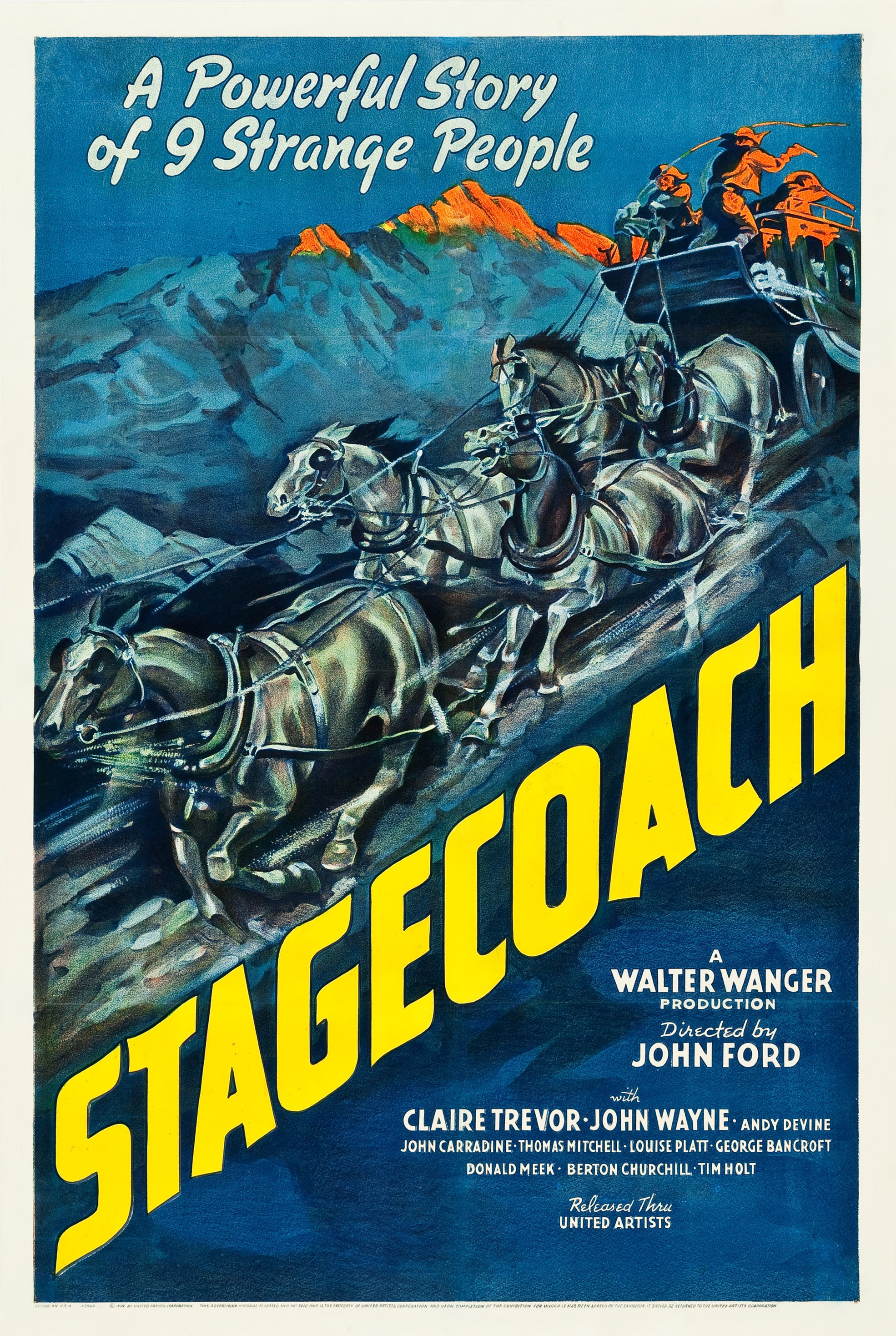
Based on the book by Ernest Haycox “Stage to Lordsburg”, the film focuses on a group of individuals from different social backgrounds traveling together in a stagecoach bound for Lordsburg and then attacked by the Apaches.
Nominated for 5 Academy Awards, the movie won 2: Best supporting actor (Thomas Mitchell) and Best Soundtrack. Thanks to Ford’s ability to depict characters with depth and social commentary, features until then completely lacking in Western, the film redefined the genre and allowed it to grow into one of the most celebrated forms of American cinema.
John Ford became its most admired director, and an inspiration to countless other masters, including Orson Welles and Akira Kurosawa. His iconic quote encapsulates his legend: “My name’s John Ford, I make Westerns.”
The Ox-Bow Incident by William Wellman (1943)
With Henry Fonda, Dana Andrews, Anthony Quinn; B&W, 75 min

When a farmer from the West disappears, three tramps are captured and accused of theft of cattle and murder. They are then hanged by the villagers despite the lack of evidence.
Taken from the novel of the same name by Vantiburg Clark. A dark Western, centered on the immorality of mass justice through the lynching of innocent men. Orson Welles praised the performance of Henry Fonda and a “lot of other good actors, standing around kind of projecting gloom” as quoted in the book My Lunches with Orson. The movie was nominated for Best Picture at the 1944 Academy Awards, but lost to Casablanca. Clint Eastwood said it was one of his favorite films when he was growing up, and an inspiration for his own 1992 movie Unforgiven.
My Darling Clementine by John Ford (1946)
With Henry Fonda, Victor Mature, Walter Brennan; B&W, 97min

Upon returning from a trip to Tombstone, a rapidly growing and lawless town, the Earp brothers find their brother dead and the herd stolen. Wyatt Earp takes on the position of town marshal, in order to avenge his dead brother.
Based on the novel “Wyatt” by Stuart N. Lake, this reconstruction of the historical fight at the O.K. Corral is based on an account by Wyatt Earp himself, when Ford was still a prop boy in the early days of silent movies: “I used to give him a chair and a cup of coffee, and he told me about the fight at the O.K. Corral. So in My Darling Clementine, we did it exactly the way it had been.” (Source: Wikipedia)
My Darling Clementine was Sam Peckinpah’s favorite Western movie; he paid homage to it in several of his Westerns, including The Wild Bunch.
Red River by Howard Hawks (1948)
With John Wayne, Montgomery Clift, Joanne Dru; B&W, 127 min

A rich farmer decides to take a herd along the Chisholm Trail with his adopted son and some of his helpers to sell it at a good price, but along the way problems arise.
Many film critics considered it one of the best Western movies ever made; Roger Ebert pointed out how its themes are taken directly from “classical tragedy: the need of the son to slay the father, literally or symbolically, in order to clear the way for his own ascendancy – and the father’s desire to gain immortality through a child”.
Gary Cooper rejected the role of the protagonist because he was too cruel, and the part went to John Wayne, who delivered one of the best performances of his career: John Ford himself was very impressed, and apparently said “I didn’t know the big son of a bitch could act!”
High Noon by Fred Zinnemann (1952)
With Gary Cooper, Grace Kelly, Lee Van Cleef; B&W, 85min
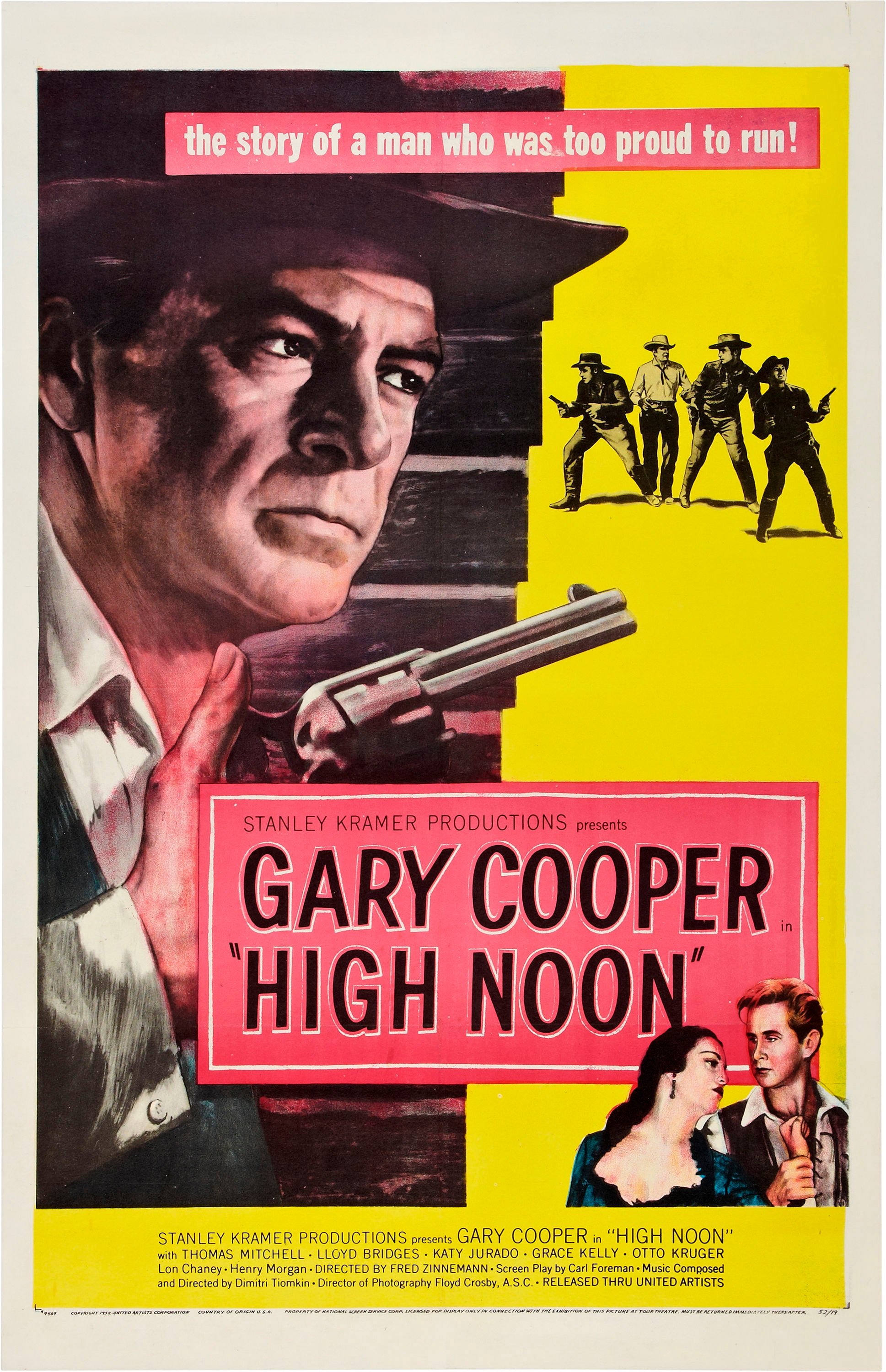
A sheriff on the verge of retirement is left to deal with a criminal he had sent to jail years before, who’s arriving with his gang of outlaws on the noon train to seek revenge.
The movie was taken from the short story “The Tin Star” by John W. Cunningham and adapted by screenwriter Carl Foreman, who was called to testify before the House Un-American Activities Committee during production of the film due to his former membership in the Communist party. The movie is considered an obvious allegory against blacklisting; John Wayne, a strong supporter of McCarthyism, considered it “the most un-American thing” he’d ever seen, and later joined forces with director Howard Hawks to make Rio Bravo in response to the movie.
Nominated for seven Academy Awards and winner of four, High Noon is considered a masterpiece of Western cinema and a fundamental work by every cinephile. However, at the time of release it was not well received for many reasons: the film was too European for a Western, the theme of human cowardice was believed to be too political – and of course its denunciation of McCarthyism made it controversial.
Shane by George Stevens (1953)
With Alan Ladd, Jean Arthur, Van Heflin; color, 118min

Shane, an experienced and mysterious gunfighter, arrives in an isolated valley and is hired by rancher Joe Starret to work at his farm. He soon finds himself having to defend the Starret family from cattle-baron Ryker, who wants to push them to move away and give up their land.
From the book of the same name by Jack Shaefer, the film won an Academy Award for Best Photography and was nominated for Best Supporting Actor for the role played by ten-year-old Brandon De Wilde, who died at 30 in a car accident.
Fun fact: The movie is mentioned in the film The negotiator and twice in Logan, the tenth installment in the X-Men movie series.
Johnny Guitar by Nicholas Ray (1954)
With Joan Crawford, Sterling Hayden, John Carradine; color, 110min
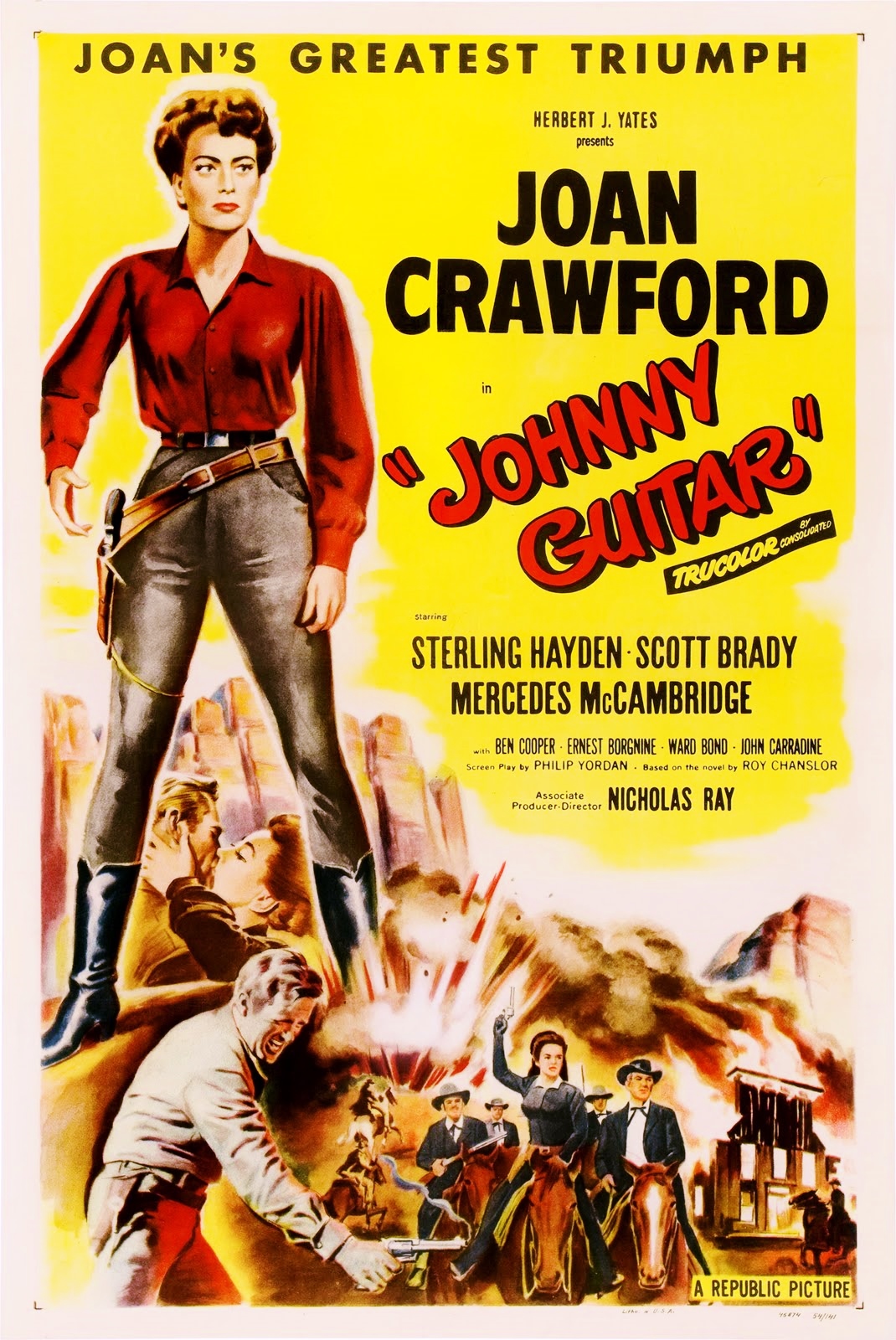
Reformed gunslinger Johnny Guitar arrives to the isolated cattle town in Arizona where his ex-lover Vienna opened a saloon knowing that an important railroad will soon be laid by. The townsfolk, who oppose the construction of the railroad and are weary of her association with the gang of bank-robbers led by Dancing Kid, want to force Vienna her to leave town. Vienna, played by Joan Crawford, is one of the most strong-willed and determined women ever seen in a Western movie, and refuses to let anyone intimidate her into leaving town, but her enemies are just too many, so she hired Johnny to protect her through his unmatched talent with guitars and guns.
Everything about the film is absolutely memorable: Joan Crawford’s unbreakable will, the dramatic red sunset in the background as Johnny warns her that if she’s going to stay she will have to kill or be killed; the relentless fury of Vienna’s rival Emma, who incites the locals against her leading to the suspenseful, final duel between the two women, who deeply disliked each other also in real life. In fact, Johnny Guitar was reviewed as “the best Western ever made” by legendary French magazine Cahiers du Cinema in 1966. Jean-Luc Godard referenced Johnny Guitar in several of his movies, and Francois Truffaut described it as the “Beauty and the Beast of Westerns, a Western dream” due to its extravagance, poetry and bright colors.
The Searchers by John Ford (1956)
With John Wayne, Jeffrey Hunter, Vera Miles; color, 119min

Shortly after decorated veteran Ethan Edwards returns home after the Civil War, his brother’s whole family is killed by the Comanches – except for his nieces who are kidnapped. Ethan then embarks on a years-long journey to find his abducted niece and avenge his brother, accompanied only by his adopted nephew. From the book of the same name by Alan Le May, the movie is based on numerous real-life accounts of 19th-century child abductions in Texas, that Le May studied while researching the novel.
The movie is well-known for its depiction of race relations and miscegenation, and despite its display of vengeful hatred towards Native Americans it’s widely regarded as one of the greatest movies of all times. It appears at n.12 in the AFI “100 Years…100 Movies” 2007 revised list; Martin Scorsese listed it among his all-time favorite movies, and Steven Spielberg once said that he watches The Searchers at least once a year. The movie was a great source of inspiration to George Lucas while filming Star Wars: the scene of Ethan’s discovery of the massacre is mirrored in the first installment of the Star Wars trilogy, where Luke Skywalker returns home only to find his house burning and his family killed by Imperial Stormtroopers.
3:10 to Yuma by Delmer Daves (1957)
With Glenn Ford, Van Heflin, Felicia Farr; B&W, 92min
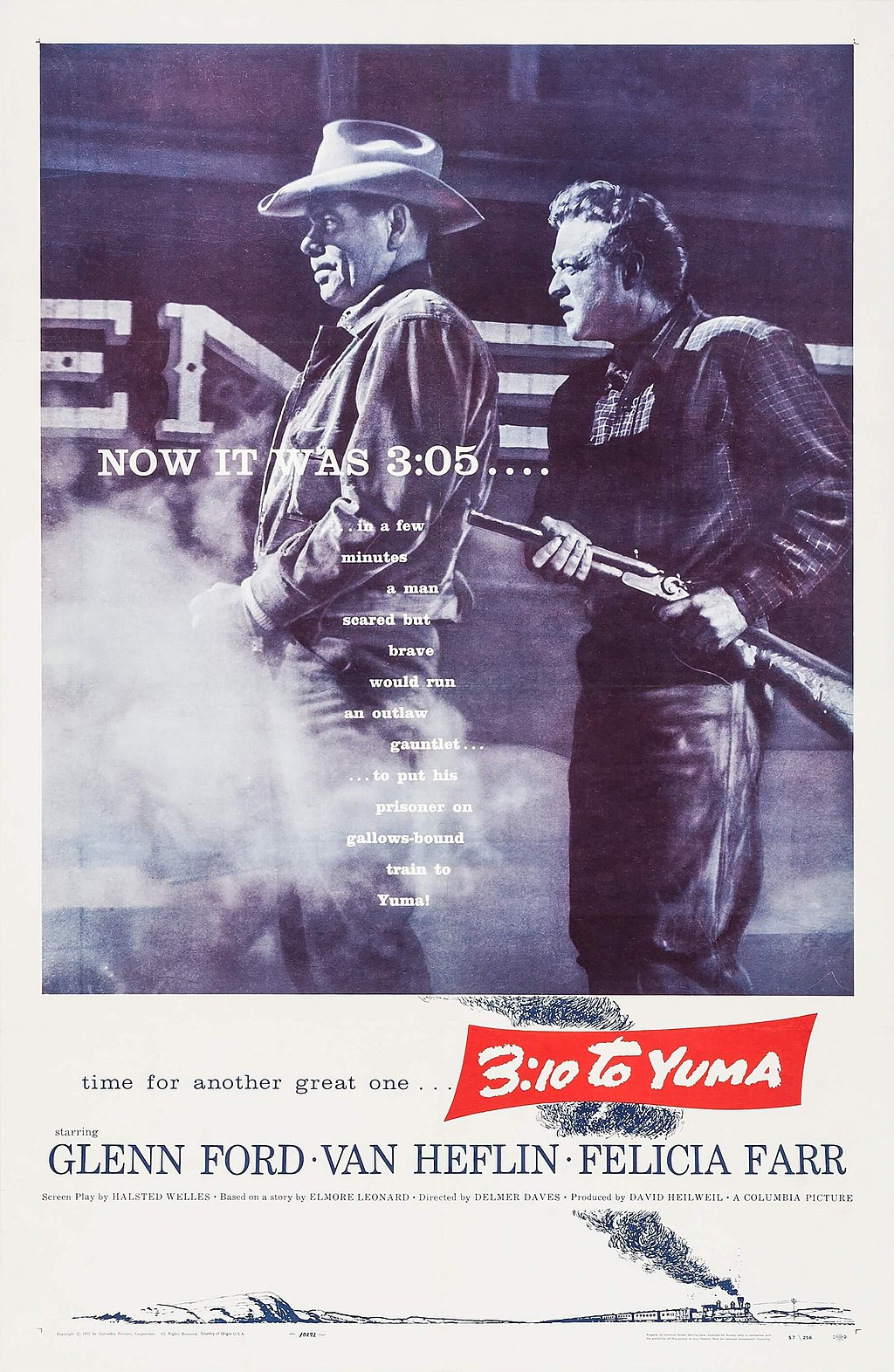
In a town in Arizona, the leader of a gang of train-robbers (Glenn Ford) must be escorted to the 3:10pm train that will take him to jail in Yuma. When the stage-line owner offers $200 as a reward, a local farmer impoverished by years of drought agrees to take on the dangerous task along with with other volunteers. But the outlaw’s gang will do everything they can to free him.
A suspense classic based on the novel by Elmore Leonard; the title song, played at the beginning and end of the movie, was sung by Frankie Laine and became one of his best-known hits.
In 2007, a remake of the film with Russell Crowe and Christian Bale was an international success.
Further reading:
“3:10 to Yuma: Curious Distances” on Criterion.com
The Magnificent Seven by John Sturges (1960)
With Yul Brynner, Steve McQueen, James Coburn; color, 128 min
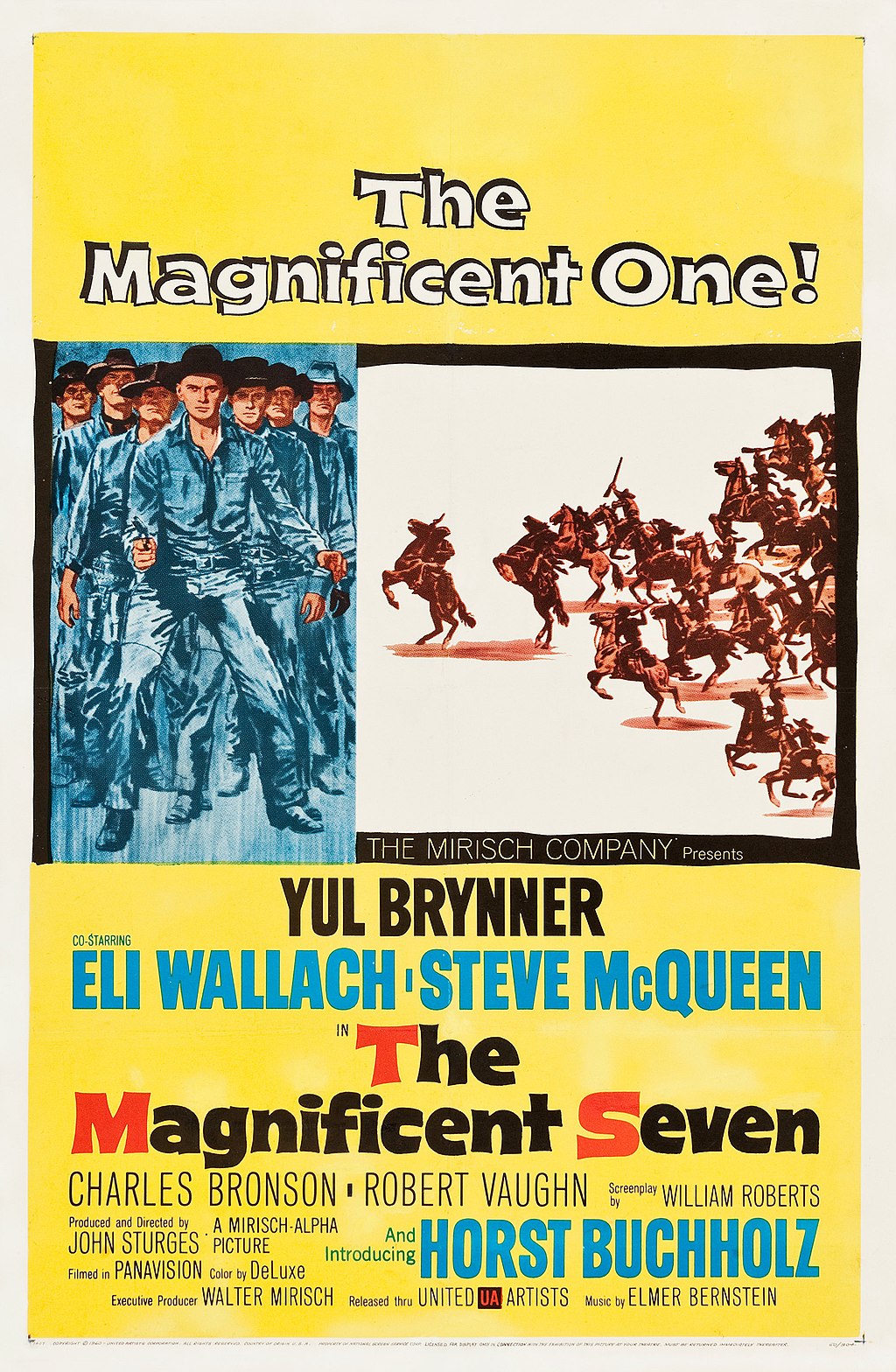
A Western remake of Akira Kurosawa’s Seven Samurai, the film tells the story of Chris Adams, a gunslinger who is hired by a village on the frontier between the United States and Mexico to protect the locals from a gang of bandits that regularly attacks them to steal money and food. The gunslinger manages to hire six gunfighters to help, and agrees to lead the group.
Welcomed with mixed reviews at the time of release, the movie is now regarded as an undisputed classic, and some of its cast members (Steve Mc Queen and Charles Bronson in particular) went on to become superstars some years after the film’s release. The iconic soundtrack by Elmer Bernstein was nominated for Best Score at the 1960 Academy Awards.
Header image: Double O Arch, Moab, Arches National Park; Click for photo credit


